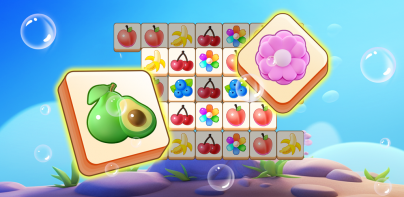





Portuguese Keyboard Plugin

Descripción de Portuguese Keyboard Plugin
Dictionary plugin for Multiling O Keyboard autocorrect and word prediction
Instruction:
⑴ Install this plugin and Multiling O Keyboard. https://play.google.com/store/apps/details?id=kl.ime.oh
⑵ Run O Keyboard and follow its setup guide.
⑶ Slide space bar to switch languages.
If you have font issue, read this: http://honsoapps.appspot.com/1/ma.html
Wikipedia:
Portuguese (português or, in full, língua portuguesa)[nb 1] is a Romance language and the sole official language of Portugal, Brazil, Mozambique, Angola, Cape Verde, Guinea-Bissau, and São Tomé and Príncipe.[4] It also has co-official language status in Macau (China), Equatorial Guinea and East Timor. As the result of expansion during colonial times, Portuguese speakers are also found in Goa, Daman and Diu in India;[5] in Batticaloa on the east coast of Sri Lanka, in the Indonesian island of Flores ; and in Malacca in Malaysia.
Portuguese is a part of the Ibero-Romance group that evolved from several dialects of Vulgar Latin in the medieval Kingdom of Galicia. With approximately 215 to 220 million native speakers and 260 million total speakers, Portuguese is usually listed as the fifth most spoken language in the world, the third most spoken European language[6] and the major language of the Southern Hemisphere. It is also the most spoken language in South America and the second most spoken in Latin America after Spanish, and is an official language of the European Union and Mercosul.
Spanish author Miguel de Cervantes once called Portuguese "the sweet and gracious language" and Spanish playwright Lope de Vega referred to it as "sweet", while the Brazilian writer Olavo Bilac poetically described it as "a última flor do Lácio, inculta e bela" (the last flower of Latium, rustic and beautiful). Portuguese is also termed "the language of Camões", after one of the greatest literary figures in the Portuguese language, Luís Vaz de Camões.[7][8][9]
In March 2006, the Museum of the Portuguese Language, an interactive museum about the Portuguese language, was founded in São Paulo, Brazil, the city with the greatest number of Portuguese language speakers in the world.[10] The Museum is the first of its kind in the world.[10]
</div> <div jsname="WJz9Hc" style="display:none">Plugin Diccionario MultiLing O autocorrección Teclado y predicción de palabras
Instrucción:
⑴ Instalar este plugin y MultiLing O teclado. https://play.google.com/store/apps/details?id=kl.ime.oh
⑵ Run O Teclado y seguir su guía de configuración.
⑶ barra espaciadora diapositivas para cambiar idiomas.
Si tiene un problema de la fuente, lea esto: http://honsoapps.appspot.com/1/ma.html
Wikipedia:
Portugués (Português o, en su totalidad, portuguesa língua) [nb 1] es una lengua romance y la única lengua oficial de Portugal, Brasil, Mozambique, Angola, Cabo Verde, Guinea-Bissau y Santo Tomé y Príncipe. [4] También tiene cooficial idioma en Macao (China), Guinea Ecuatorial y Timor Oriental. Como resultado de la expansión en la época colonial, los hablantes de portugués también se encuentran en Goa, Daman y Diu en la India; [5] en Batticaloa en la costa este de Sri Lanka, en la isla indonesia de Flores; y en Malaca en Malasia.
El portugués es una parte del grupo Ibero-Romance que evolucionó a partir de varios dialectos del latín vulgar en el reino medieval de Galicia. Con aproximadamente 215 hasta 220.000.000 hablantes nativos y 260 millones de hablantes totales, portugués aparece normalmente como el quinto idioma más hablado en el mundo, la tercera lengua europea más hablada [6] y el principal idioma del hemisferio sur. También es el idioma más hablado en América del Sur y el segundo más hablado en América Latina después de español, y es una lengua oficial de la Unión Europea y Mercosur.
Autor español Miguel de Cervantes una vez llamó portugués "el lenguaje dulce y amable" y dramaturgo español Lope de Vega se refirió a ella como "dulce", mientras que el escritor brasileño Olavo Bilac poéticamente describió como "una última flor hacer Lacio, inculta e bela" (la última flor del Lacio, rústico y bello). Portugués también se denomina "la lengua de Camões", después de una de las más grandes figuras de la literatura en lengua portuguesa, Luís Vaz de Camões. [7] [8] [9]
En marzo de 2006, el Museo de la Lengua Portuguesa, un museo interactivo sobre la lengua portuguesa, fue fundada en São Paulo, Brasil, la ciudad con mayor número de hablantes de portugués en el mundo. [10] El museo es el primero de su tipo en el mundo. [10]</div> <div class="show-more-end">
























